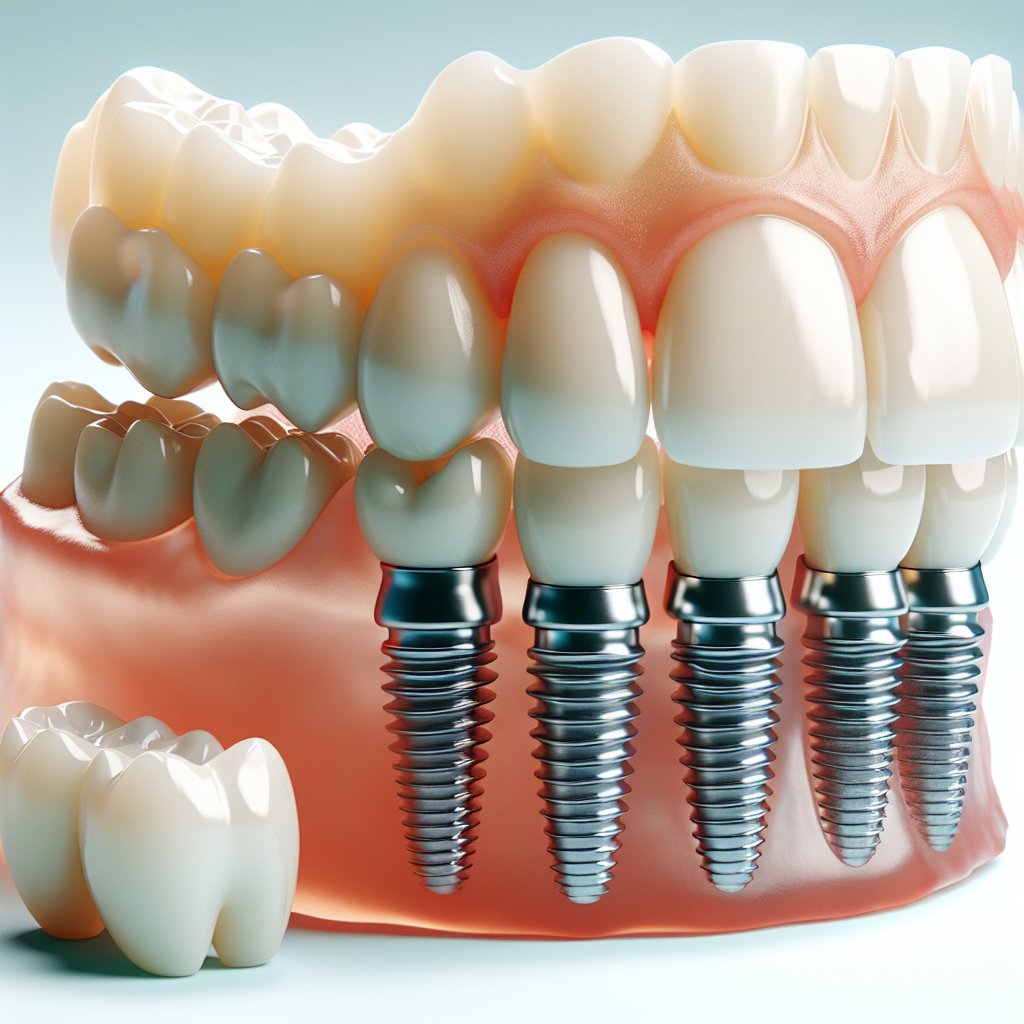The latest updates on implant-supported dentures highlight significant advancements in dental technology and patient care. As more individuals seek solutions for missing teeth, implant-supported dentures have emerged as a popular choice due to their stability, comfort, and aesthetic appeal. This article will explore the recent developments in this field, including innovative materials, techniques, and the overall impact on patient quality of life.
Understanding Implant-Supported Dentures
Implant-supported dentures are dental prosthetics anchored to dental implants, which are titanium posts surgically placed into the jawbone. Unlike traditional dentures that rest on the gums, implant-supported dentures provide a more secure fit, reducing the risk of slippage and discomfort. This section will delve into the components, benefits, and the procedure involved in obtaining implant-supported dentures.
Components of Implant-Supported Dentures
Implant-supported dentures consist of several key components:
- Dental Implants: These are the titanium posts that are surgically inserted into the jawbone. They serve as the foundation for the dentures.
- Abutments: These are connectors placed on top of the implants, which hold the denture in place.
- Denture Base: The part of the denture that mimics the gums and supports the artificial teeth.
- Artificial Teeth: These are custom-made to match the patient’s natural teeth in color and shape.
Benefits of Implant-Supported Dentures
There are numerous advantages to choosing implant-supported dentures over traditional options:
- Enhanced Stability: The implants provide a secure anchor, preventing movement during eating or speaking.
- Improved Comfort: Unlike traditional dentures, which can cause irritation, implant-supported options are more comfortable due to their secure fit.
- Better Aesthetics: These dentures look and feel more like natural teeth, boosting the patient’s confidence.
- Bone Preservation: Implants stimulate the jawbone, preventing bone loss that often occurs with missing teeth.
The Procedure for Implant-Supported Dentures
The process of obtaining implant-supported dentures typically involves several steps:
- Initial Consultation: The dentist evaluates the patient’s oral health and discusses treatment options.
- Implant Placement: The dental implants are surgically placed into the jawbone under local anesthesia.
- Healing Period: A healing period of several months is necessary for the implants to integrate with the bone.
- Abutment Placement: Once healed, abutments are attached to the implants.
- Denture Fitting: Custom dentures are created and fitted onto the abutments.
Recent Innovations in Implant-Supported Dentures
Recent advancements in dental technology have significantly improved the effectiveness and accessibility of implant-supported dentures. This section will discuss some of the latest innovations, including new materials, techniques, and digital dentistry applications.
New Materials and Techniques
Innovations in materials have led to stronger and more durable implant-supported dentures. Some of the notable advancements include:
- High-Strength Ceramics: These materials offer excellent aesthetics and durability, making them ideal for artificial teeth.
- Biocompatible Materials: New biocompatible materials reduce the risk of rejection and improve integration with the jawbone.
- 3D Printing: This technology allows for precise customization of dentures, ensuring a better fit and appearance.
Digital Dentistry and Its Impact
Digital dentistry has revolutionized the way dental professionals approach implant-supported dentures:
- Digital Impressions: These provide a more accurate representation of the patient’s mouth, leading to better-fitting dentures.
- Computer-Aided Design (CAD): CAD software allows for precise planning and customization of implants and dentures.
- Guided Implant Surgery: This technique enhances the accuracy of implant placement, reducing surgery time and improving outcomes.
Patient Education and Informed Choices
As technology advances, patient education becomes increasingly important. Dental professionals are now focusing on providing comprehensive information about implant-supported dentures, including:
- Understanding the Procedure: Patients are encouraged to learn about the steps involved in obtaining implant-supported dentures.
- Post-Operative Care: Proper care and maintenance are crucial for the longevity of the implants and dentures.
- Realistic Expectations: Patients should have a clear understanding of what to expect in terms of recovery and results.
The Future of Implant-Supported Dentures
The future of implant-supported dentures looks promising, with ongoing research and development aimed at improving patient outcomes. This section will explore potential future trends and advancements in this field.
Emerging Technologies
As technology continues to evolve, several emerging trends are likely to shape the future of implant-supported dentures:
- Regenerative Medicine: Research into stem cell therapy and tissue engineering may lead to improved healing and integration of implants.
- Smart Implants: The development of implants with embedded sensors could provide real-time data on the health of the implant and surrounding tissues.
- Tele-dentistry: Remote consultations and follow-ups may become more common, allowing for greater accessibility to dental care.
Personalized Treatment Plans
As the field of dentistry moves towards more personalized care, implant-supported dentures will likely benefit from tailored treatment plans that consider individual patient needs and preferences. This approach may include:
- Customized Aesthetic Solutions: Dentists will work closely with patients to create dentures that match their unique facial features and preferences.
- Holistic Care: Integrating overall health considerations into dental treatment plans will become increasingly important.
- Long-Term Maintenance Plans: Ongoing support and maintenance will be emphasized to ensure the longevity of implants and dentures.
Conclusion
The latest updates on implant-supported dentures reflect a dynamic and rapidly evolving field within dentistry. With advancements in technology, materials, and patient care, these solutions offer a reliable and aesthetically pleasing option for individuals with missing teeth. As research continues and new innovations emerge, the future of implant-supported dentures promises to enhance the quality of life for countless patients, providing them with the confidence and functionality they deserve.




